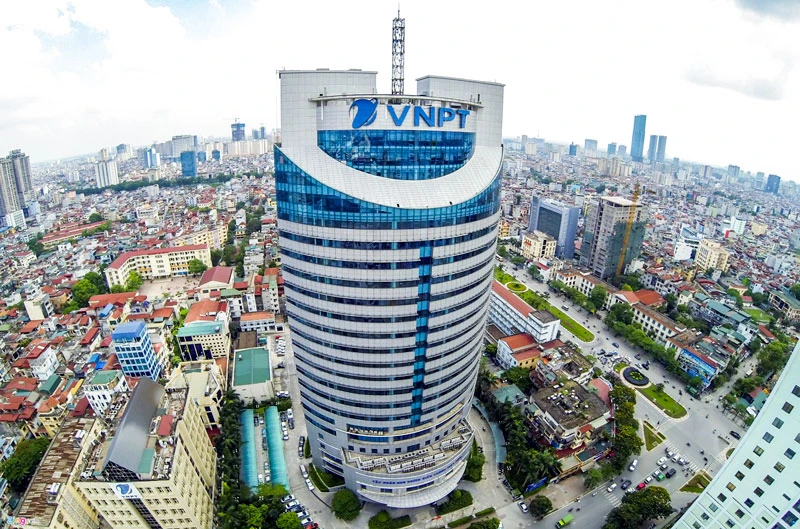
Nevertheless, there are still too many SOEs that have to be equitized within this year but which are stuck deep in unresolved policies, and the current unfavorable stock market movement due to the Covid-19 epidemic is not making it possible to set any goals either.
Slow progress
In 2019, the progress of equitization of SOEs was implemented far too slowly. Only twelve enterprises were approved by competent authorities which included three enterprises on the list of equitized SOEs as planned. According to the Ministry of Finance, this was mainly due to the restructuring and handling of houses and land to submit to the competent authorities for approval under Decree 167/2017/ND-CP of the Government on rearrangement and handling of public assets. A number of ministries, branches, localities, economic groups, state-owned corporations have not really seriously taken to implementing the equitization plan.
Almost 171 enterprises were approved by competent authorities for equitization from 2017 to the end of 2019. However, only 36 out of 128 enterprises are on the list of equitization under Decision 991/TTg-DMDN dated 10 July 2017 and Decision No. 26/2019/QD-TTg dated 15 August 2019 of the Prime Minister, which amount to 28% of listed enterprises. The remaining 72% amount to 92 enterprises.
According to the Commission for the Management of State Capital at Enterprises (CMSC), by the end of 2020, the committee will complete the equitization of six economic groups and state-owned corporations, including the Vietnam Posts and Telecommunications Group; the Vietnam National Coal & Mineral Industries Group; the Vietnam National Chemical Group; MobiFone Corporation; Vietnam Northern Food Corporation; and the Power Generation Corporation 2.
There are also 42 enterprises belonging to economic groups and state-owned corporations. The committee has established an equitization steering committee to implement necessary steps and direct the completion of equitization of seventeen enterprises of economic groups and state-owned corporations, as well as direct completion of the remaining 25 enterprises in 2020.
However, the restructuring, equitization and divestment of enterprises still faces problems in determining the authority to formulate, approve land use plans, rearrange and handle real estate.
Specifically, Decree 126/2017/ND-CP on equitization stipulates that equitized enterprises include enterprises with 100% state capital (level I enterprises) and enterprises with 100% of charter capital invested by level II enterprises. Meanwhile, Decree 167/2017/ND-CP only stipulates that the application subjects are class I enterprises, hence, it is not possible to identify the competent authorities to formulate, approve land use plans, rearrange and handle real estate when implementing equitization of level II enterprises.
Equitization also has problems in making land use plans as prescribed in Clause 1, Article 13 of Decree 126/2017/ND-CP on equitization. Specifically, enterprises must review the entire area of land being managed and used to formulate land use plans according to regulations. However, since there are no specific instructions, this is being applied under Decree 167/2017/ND-CP.
In addition, some businesses with a large amount of land and many houses, such as Vietnam Posts and Telecommunications Group, have difficulty completing 100% of the arrangement and handling of houses and land to keep up with the equitization schedule before 31 December 2020. At the same time, when there has been no equitization decision, the competent authority has not been able to carry out the next tasks, such as approving the equitization cost estimate, bidding for selecting equitization consultants, and determining the value of enterprises.
This clearly affects the entire equitization process. In actual implementation, the review of houses, land and public assets bring both houses and assets owned by the enterprise for review and for setting a plan. According to calculations, about 2,000 locations of houses and land of economic groups and state-owned corporations are expected to be reviewed.
Obstacles in implemention procedures
Agribank has been transforming its operating model into a Commercial Joint Stock Bank to attract stronger investors, and had attempted to strive for an IPO by the end of 2019 or early 2020. However, according to Agribank leaders, the bank has not yet reached the stage of selecting potential partners to buy back shares when divesting a part of the capital.
The progress of equitization at Agribank is currently in the first stages. The implementing procedures related to land and assets of the bank in many localities is facing difficulties and obstacles in the process of preparation for equitization. Currently land under the management of Agribank is nearly three million sq. m. In addition, the number of customers are in tens of millions. Therefore, the determination of Agribank to change its model is very complicated and will take a lot of time, so it is not easy to complete the valuation of the enterprise or the equitization process within this year.
-Mr. Dang Quyet Tien, Director of Department of Corporate Finance, Ministry of Finance
The Prime Minister has requested that by the end of 2020, Agribank, the Parent Company-VNPT, Power Generation Corporation 1 & 2 must be equitized under Decree 32/2018/ND-CP on state capital investment in enterprises and management and use of capital and assets in enterprises, along with Decree 167/2017/ND-CP and Decree 126/2017/ND-CP, which are currently being amended and supplements revised or added.
In context of many policy mechanisms still facing many entanglements and with the stock market facing many difficulties, many people have suggested that there should be changes in the equitization process. Mr. Nguyen Dinh Cung, former director of the Central Institute for Economic Management, said that in the current period, it is not necessary to push for equitization, especially as the market is not good.




















